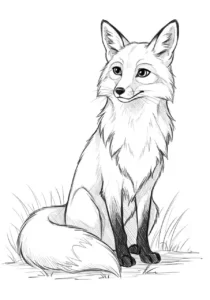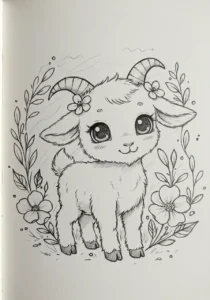From Page to Screen: Fiction Books That Became Hit Movies
There’s something magical about seeing a beloved story from the pages of a book come to life on the big screen. Over the years, many fiction books have made the leap from page to screen, transforming into blockbuster movies that capture the imagination of audiences worldwide. While some adaptations remain faithful to their source material, others take creative liberties, sparking debates among fans. Regardless, the journey from literature to cinema has given us some of the most iconic films in history. Let’s explore some of the standout examples of fiction books that became hit movies and why they resonated with audiences.
Why Do Fiction Books Make Great Movies?
Fiction books often provide filmmakers with rich narratives, complex characters, and immersive worlds. These elements translate well to the visual medium of cinema. Books allow for deep storytelling, which filmmakers can condense or adapt into a compelling two-hour experience. Additionally, books come with a built-in audience—fans who are eager to see their favorite stories brought to life. This combination of depth and popularity makes fiction books an ideal source for movies.
Iconic Fiction Books That Became Hit Movies
1. Harry Potter Series by J.K. Rowling
Arguably one of the most successful book-to-movie franchises of all time, the Harry Potter series captured the hearts of readers and moviegoers alike. The magical world of Hogwarts, brought to life by stunning visual effects and an outstanding cast, became a cultural phenomenon. Each film stayed relatively true to its source material, allowing fans to relive their favorite moments from the books.
2. The Lord of the Rings by J.R.R. Tolkien
Peter Jackson’s adaptation of The Lord of the Rings trilogy is often hailed as one of the greatest cinematic achievements. Tolkien’s epic fantasy world was meticulously recreated on screen, earning critical acclaim and numerous awards, including multiple Oscars. The films managed to condense Tolkien’s dense lore while maintaining the heart of the story.
3. The Hunger Games by Suzanne Collins
Suzanne Collins’ dystopian novels found massive success on the big screen with Jennifer Lawrence’s portrayal of Katniss Everdeen. The movies captured the intensity and emotional depth of the books while highlighting themes of survival, rebellion, and sacrifice. The franchise became a global sensation, sparking conversations about societal issues.
4. The Great Gatsby by F. Scott Fitzgerald
Baz Luhrmann’s 2013 adaptation of The Great Gatsby brought F. Scott Fitzgerald’s classic novel to life with a modern flair. Starring Leonardo DiCaprio as Jay Gatsby, the film stayed true to the novel’s themes of love, ambition, and the American Dream while adding a visually stunning aesthetic.
5. To Kill a Mockingbird by Harper Lee
Harper Lee’s timeless novel was adapted into a critically acclaimed film in 1962. Gregory Peck’s portrayal of Atticus Finch remains one of the most iconic performances in cinema history. The movie captured the essence of the book’s themes of justice, morality, and racial inequality.
6. Gone Girl by Gillian Flynn
Gillian Flynn’s psychological thriller was masterfully adapted into a film directed by David Fincher. With its gripping plot twists and stellar performances by Rosamund Pike and Ben Affleck, Gone Girl became a box office hit while staying true to its dark and suspenseful source material.
7. The Twilight Saga by Stephenie Meyer
Love it or hate it, there’s no denying that The Twilight Saga made an impact on popular culture. The vampire romance series translated well to the big screen, captivating its target audience and launching the careers of Kristen Stewart and Robert Pattinson.
Challenges in Adapting Fiction Books for Film
Not all adaptations are created equal. While some succeed in capturing the essence of their source material, others fall short due to various challenges:
- Condensing Content: Books often contain intricate details and subplots that are difficult to fit into a two-hour runtime.
- Fan Expectations: Book fans can be fiercely protective of their favorite stories, making it challenging for filmmakers to satisfy everyone.
- Creative Liberties: Directors sometimes take liberties with characters or plotlines, which can lead to backlash if audiences feel the changes detract from the original story.
FAQs About Book-to-Movie Adaptations
1. Why do some book-to-movie adaptations fail?
Some adaptations fail because they deviate too much from the source material or fail to capture the essence of the story and characters. Poor casting choices, rushed storytelling, or lackluster direction can also contribute to an unsuccessful adaptation.
2. Are there any upcoming book-to-movie adaptations?
Yes! Hollywood continues to adapt popular fiction books into movies. Some highly anticipated adaptations include Dune: Part Two, based on Frank Herbert’s sci-fi masterpiece, and The Ballad of Songbirds and Snakes, a prequel to The Hunger Games.
3. Should I read the book before watching the movie?
It depends on personal preference. Reading the book first allows you to experience the story in its original form, while watching the movie first can make it easier to visualize characters and settings when you eventually read the book.
4. Do movies ever improve upon their book counterparts?
While rare, some movies are considered better than their books due to tighter pacing, improved character development, or enhanced visuals. Examples include The Godfather (based on Mario Puzo’s novel) and Jaws (based on Peter Benchley’s book).
Conclusion
From page to screen, fiction books have provided filmmakers with a treasure trove of stories that continue to captivate audiences worldwide. Whether you’re a fan of fantasy epics like The Lord of the Rings, gripping thrillers like Gone Girl, or timeless classics like To Kill a Mockingbird, there’s no denying the power of storytelling in both literature and cinema. So next time you watch a movie based on a book, take a moment to appreciate the journey it took—from page to screen—to create something truly memorable.



